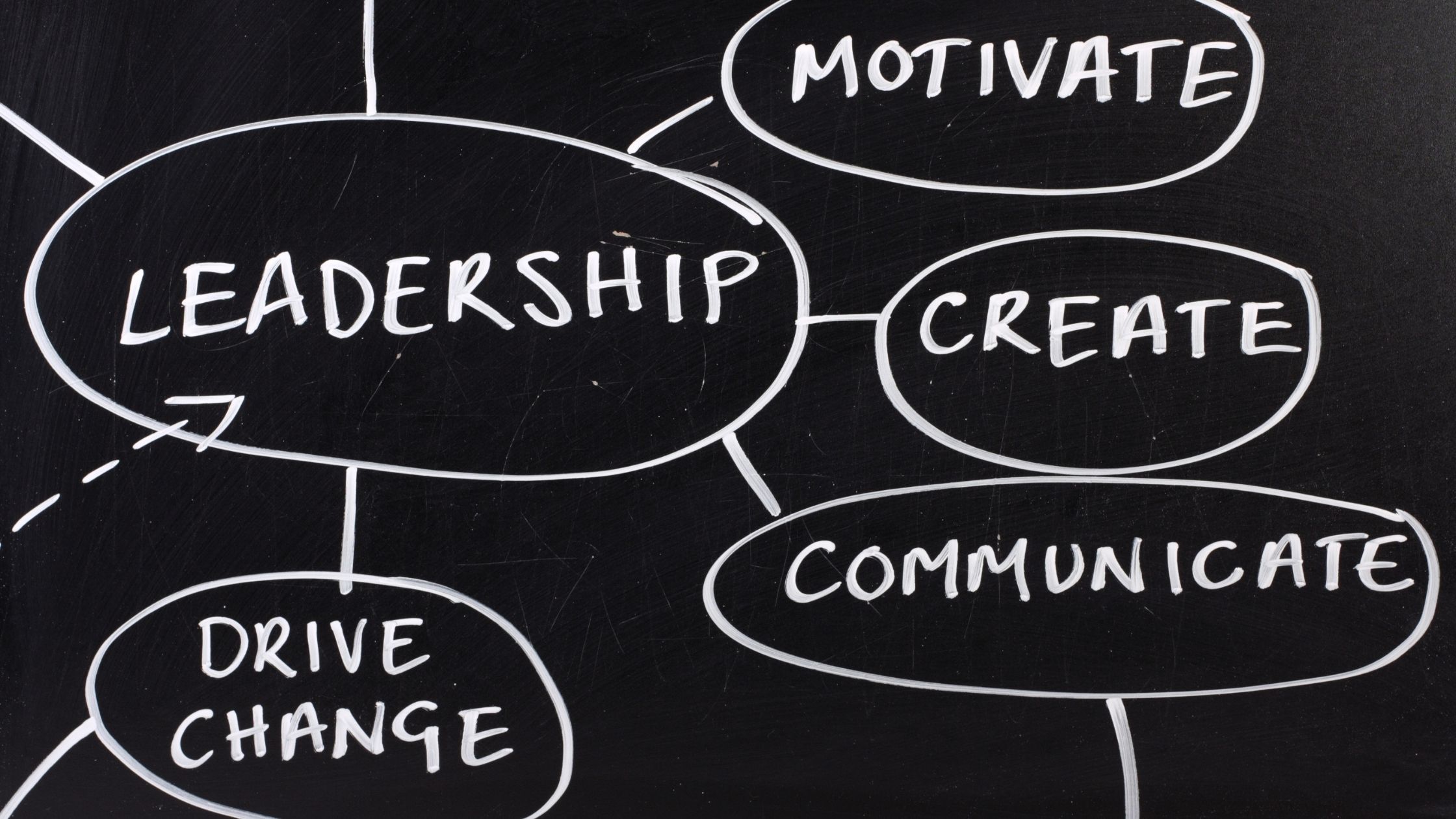Leadership is a crucial role in any company. Leaders drive growth, encourage innovation, and help companies meet their goals. In essence, leaders exist to help their companies grow. Every company wants good, effective leaders at the helm. Good leaders are effective because they possess a unique set of skills and personality traits that allow them to take charge and inspire confidence in the people they lead.
Good leaders develop strategies for growth. They help define objectives and devise ways to achieve them. Leaders boost motivation and collaboration by fostering a sense of team spirit within their subordinates, encouraging them to work together and motivate one another.
So, when it comes to being a leader, you want to ensure you have the skills needed for the tasks at hand. And one of the best ways to assess where your skill level lies is to use a leadership skill assessment.
What Is a Leadership Skills Assessment?
A leadership skills assessment is an appraisal a leader takes to assess their ability to lead and manage people. Many organizations use leadership assessments before making leadership hiring decisions but also use them as part of ongoing leadership development post hiring. Leadership assessments are also good tools for individuals who are trying to improve their skills to become effective leaders.
Why Assess Your Leadership Skills?

Taking a leadership skills assessment is important because it can help you determine what your leadership strengths are as well as help you to know which skills you need to improve. Leadership assessments can also help you to know your unique leadership style.
Understanding how you lead can help you better interact with the people you lead. Other benefits to taking leadership skill assessments include:
● Increasing your self-awareness
● Driving your career growth
● Helping you develop career goals
● Helping you create a plan to become a stronger leader
What Are the Top Leadership Skills?
The top skills and traits that are important for leaders to have are emotional intelligence, self-awareness, and communication. Emotional intelligence is the ability to recognize, understand, and manage one’s own emotions and the ability to empathize with others. Self-awareness is the ability to look inward to gain knowledge of our own character and the reasons behind our actions.
Leaders lacking in emotional intelligence and ultimately empathy could negatively impact the morale of their team. That can cause a considerable number of them to be unhappy at work, feel unappreciated, or even quit. Studies show that 66% of employees consider quitting because of a lack of appreciation.
What Kind of Leadership Assessments Are Available?

There are a great many different kinds of leadership skills assessments available. The challenge comes in finding the assessment that best meets your needs. According to experts, high-quality assessments should:
● Be competency-based
● Offer an objective view of strengths and development areas.
● Pinpoint the exact behavior within the competency that a leader needs to focus on.
● Give insights about readiness for future roles.
● Provide resources to support development post-assessment.
I’ve put together a shortlist of some of the most commonly used leadership skill assessments to gauge one’s ability to lead across several metrics.
1. Myers-Briggs Type Indicator (MBTI)
Myers-Briggs is a very popular personality assessment that’s been around for over 50 years. It’s used widely for team-building exercises for organizations and builds on 16 distinctive personality types built from four principal psychological functions, or processes: sensing, intuition, feeling, thinking. The functions are represented by a combination of four letters that represent personality types:
● Extraversion (E) vs. Introversion (I)
● Sensing (S) vs. Intuition (N)
● Thinking (T) vs. Feeling (F)
● Judging (J) vs. Perceiving (P)
2. The DiSC Test
The DiSC assessment classifies how we express emotions into the four behavior types of DISC:
● Dominance (D) [task-oriented and active]
● Influence (I) [people-oriented and active]
● Steadiness (S) [people-oriented and reserved]
● Compliance/Conscientiousness (C) [task-oriented and active]
DISC studies individuals under two domains: external and internal. The external domain assesses how they interact with others and their external environment, while the internal assesses how well they process their thoughts. The test can help you to know if you are more people-oriented or task-oriented and whether you are more reserved or active.
3. 16 Types Test
The 16 Types Test gives insight into a person’s source of energy, as well as the way they process information, make decisions, and their lifestyle preferences. If it sounds similar to the MBTI, that’s because it is. The 16 Types assess people based on four preferences: Extraversion (E), Sensing (S), Thinking (T), and Judgment (J). They’re further combined to make up 16 different personality types built from those four preferences.
4. The Enneagram Test
The model for the Enneagram Test maps out nine different personalities: Reformer, Helper, Achiever, Individualist, Investigator, Loyalist, Enthusiast, Challenger, Peacemaker. The personalities are on a nine-pointed diagram describing the core beliefs and the worldview each one operates from. It provides insight into their leadership styles, strengths, and challenges.
5. Gallup Strengthsfinder (Clifton Strengthsfinder)
As the name implies, the Gallup Strengthsfinder focuses on strengths rather than weaknesses, preferences, or behaviors. Knowing your strengths helps create a more positive mindset in which employees feel motivated, productive, and engaged. That can also boost morale. At the end of the assessment, you’re given your top five strengths out of 30.
6. 360-Degree Feedback
A 360-Degree Leadership Assessment tool involves receiving feedback from multiple colleagues. The feedback can be anonymous or not. The objective is to receive honest, constructive comments from people who follow you, report to you or work closely with you. Receiving this type of feedback helps to know how others perceive you as a leader, and you can identify trends and areas that need to be strengthened.
7. EQ-i 2.0/EQ 360
The EQ-i 2.0/EQ 360 gives you information about your emotional quotient (EQ) competencies so you can best decide your next steps to becoming a more effective leader, a stronger team player. The EQ-i 2.0 model of emotional intelligence is based on fifteen competencies grouped into five composites: Self-Perception, Self-Expression, Interpersonal, Decision Making, and Stress Management. The fifteen competencies, taken together, provide a total EQ. The assessment report also provides some initial interpretation of the fifteen competencies. The EQ-i 2.0 report provides a total EQ inventory and a well-being indicator, providing information about the big picture of someone’s life.
7. Grisoni Coaching Leadership Skills Assessment
My own Leadership Skills Assessment is a great beginning tool for any individual to assess their leadership skills. You can take this assessment on your own time (it’s free!) and it doesn’t take long to complete. The best thing is that it can be used along with any of the other assessments as a combined tool to get a good overview of where you are in your journey and how to improve your leadership skills. I often suggest people start with this assessment and then use some of the other assessments listed here, such as the EQ-i 2.0, Myers-Briggs MBTI, or Global DiSC to go deeper.
After Your Leadership Skills Assessment, What’s Next?

Getting your skills assessed is just the beginning. Being self-aware and understanding your skills will likely lead you to the desire to improve. There are many ways to improve your skills, and one of the best is to partner with a leadership coach.
Why, you might ask? Well there are many reasons to partner with a leadership coach. Here is the shortlist:
● Increase your emotional intelligence
● Improve and enhance specific leadership skills
● Identify strengths and weaknesses and learn how to use your strengths to maximize your performance.
● Develop leadership and executive presence
● Increase your self-awareness
● Improve your organizational culture
● Gain confidence and increase your self-esteem
● Learn how to be more strategic and less reactionary
● Learn how to solve problems better and make impactful decisions
● Achieve your goals
● Optimize your productivity and effectiveness as a manager or leader
● Lead change effectively
Leadership Coaching Improves Your Skills
Leadership coaching is a developmental process where customized, one-on-one help from an experienced coach helps leaders refine their skills and achieve their goals.
Being a leader isn’t easy. Without the right qualities of patience, understanding, and care, it can be a very daunting experience for everyone involved. Leadership coaching can provide leaders with one-on-one attention to get the training they need to be better equipped with the skills for long-term success.
As a leadership coach and consultant for over 20 years, I’ve worked with hundreds of professionals in various industries and seen firsthand how coaching and assessments work together. I’m Myers-Briggs (MBTI) certified, Global DiSC Certified, and EQ-i Certified, so I can offer my clients a well-rounded menu of options when we explore their leadership skills.
My own quick assessment is also a great tool I’ve developed to start leaders on the path to considering their skills and how they might improve.
Try my Leadership Skills Assessment for free to start your leadership skills-building process. Then, schedule a call so we can talk about where to go from there.
Leadership skills can be assessed, but they can also be learned, and coaching plays an integral part in that process.


